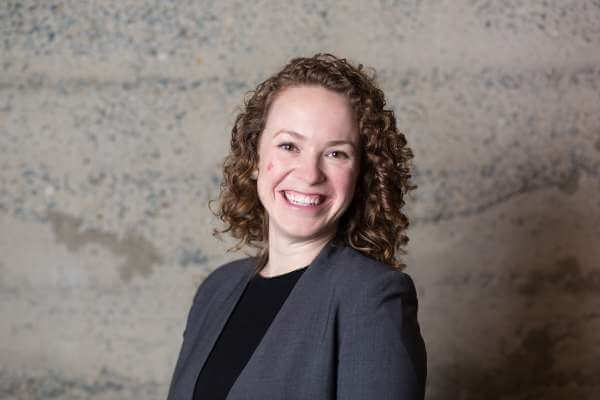Molly Fowler (Dorm Room Fund): "Amazing companies get started on university campuses"
STATION F interviewed Molly Fowler, CEO at Dorm Room Fund to learn more on what it looks like to invest in students.
Investing in students is still very rare on this side of the Atlantic despite campuses are home to very successful projects and entrepreneurs. To learn more on how investing in students works in the US, STATION F interviewed Molly Fowler, CEO at Dorm Room Fund, one of the funds that has been a pioneer in this space.

Dorm Room Fund was launched almost ten years ago, in 2012. How did it get started?
Back in 2004, Josh Kopelman and Howard L. Morgan who were both entrepreneurs themselves decided to launch First Round Capital. Fast forward First Round established its brand and its wonderful reputation. Then, they sat together and realized: it’s no mistake that amazing companies get started on campus. It’s an idea that has been proven in years and years, over and over again: from Fedex back in the 70’s to Dropbox and, of course, Facebook.
They started up with this idea and launched an experiment with half a million dollars and a few students on Penn campus in Philadelphia because First Round had an office there. The project was to find the best of the best companies at their earliest stages and write them small checks – just as angels. They were giving them enough to prove out their concept and turn something that’s an idea into something that is really full time.
And what started as an idea is now a way bigger project…
Definitely, what started off as just an idea in 2012 with a couple of students has grown all over the years into a national organisation with four regional investing teams covering all the US. We now have 70 students involved in the program who are giving time and a dedicated management team that runs Dorm Room Fund. It’s huge to say that during the nine past years, we have invested in over 300 companies such as FiscalNote or RapidSOS and that Dorm Room Fund’s founders have raised money from great funds like Andreessen Horowitz, Sequoia, First Round or First Mark.
Interestingly, the unexpected thing that came out was the amazing student partners. The experience of being part of the project is a training that these students really couldn’t get anywhere else. We see that in our graduating classes of student partners 30% of them become founders themselves, another 30% become investors at some of the best funds of the country and the remaining third are usually working for tech stars like Google and Facebook. That network is our secret weapon.
Investing in students enables you to invest in companies and projects at their very beginning. Is this also a way to spot new trends?
I think we do see early stuff earlier. One thing that is really special is that we are able to make bets that others can’t. We are able to do so thanks to our refreshing pool of investment partners as they do not have the patterns of “traditional VCs”. They have a very unique perspective on what could be an amazing company.
All people working in the tech & startup ecosystem get the question around diversity. How do you manage diversity and being able to welcome applications from students’ profiles outside of the ones from “Ivy League” universities?
When the Dorm Room Fund was funded we were sort of strictly Ivy League. We had presence at Harward, Stanford, MIT, Berkeley… Today, we continue to have excellent coverage at those schools because there are still a lot of founders that start there. That’s part of our DNA and we certainly won’t let this behind.
However, over the last years, we have really opened up Dorm Room Fund to the rest of the country. We are truly going national because we believe great founders are everywhere, not only on Ivy League campuses. In 2018 we started accepting applications from founders online and that was amazing to see the diversity of campus represented. Then we also opened applications for our investment team to anywhere in the country. Now, every student from any school in the US can apply to be on the investment team.
We’ve also developed a Female Founder Track specifically to help female founders take that first leap and get to their first institutional capital which is a really big hurdle. Finally, we have a project called Blue Print that was launched a couple of years ago. We launched it as a program in which we specifically took founders who identify as black, latinx or indigenous. But we also did an experiment this past summer by adapting it on the VC side to help talents learn the ins and outs of being an investor.
You’ve been bold in the US… Do you have plans to expand in Europe?
I think that we still have a lot of work to do. There are so many places in the US that we have only just started to cover…
Looking for press resources? Download our press kit and get in touch with our media team.